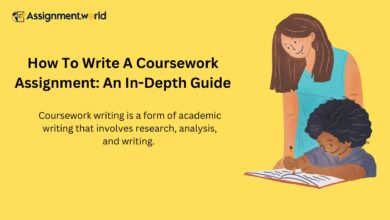
Tips to save your argument from the bias of the examiner
As you sit down to write your following argumentative essay, it’s important to remember that your examiner is not impartial. They have their own biases, which may or may not work in your favor. However, you can do a few things to save your argument from tendencies and present a strong idea regardless. In this post, we’ll discuss tips for doing just that. So read on for advice on ensuring your hard work pays off in the grade you deserve!
Best Tricks for Students to protect your grades
-
Don’t argue with the examiner without evidence:
Most argue with an examiner without evidence to support their claim. It often results in the examiner’s bias against the person, as they cannot argue effectively. Always portray your idea along with evidence. Hence, providing evidence to support your claims, such as data or statistics. Doing this will allow you to argue effectively and persuade the examiner to see your point of view.
-
Stick to the facts and avoid using personal opinions:
When constructing an argument, utilizing the facts and evaluating your thoughts and opinions on the issue is essential. When you do this, you can avoid bias in your statement. The examiner will be looking for this in your essay and will be able to see if you have carefully considered both sides of the issue. If you have not done this, your argument may be weak and unsupported. To make sure that you are sticking to the facts, you should research both sides of the issue and make sure that you understand all of the available information. Once you have done this, you can form your own opinion on the matter. Remember, it is crucial to back up your statement with facts to strengthen your argument.
-
Make sure your argument is well-organized and easy to follow:
Your idea must be well-organized and easy to follow; your examiner will likely be biased against it if it is not also make sure to know all the tricks to avoid marks deduction. Several ways are available to ensure that your argument is easy to follow.
- First, make sure to state your premises and support your conclusion.
- Second, use transitional phrases to signal the reader when you are moving from one point to another.
- Third, avoid jargon or complex language; opt for clear and concise language that your audience can easily understand. Applying these strategies ensures that your argument is easy to follow and has a better chance of success.
-
Use clear, concise language that is easy to understand:
Examiner bias is a well-documented phenomenon in which the examiner’s personal beliefs can influence their assessment of an argument. It can be a problem for writers and readers, leading to unfair judgments or inconsistent grades. There are things that writers can do to help combat examiner bias.
- First, conciseness is vital. An examiner is more likely to be biased against an argument that is long-winded or difficult to follow.
- Second, it is essential to use language that is clear and easy to understand. Jargon or technical terms can be confusing and cause the examiner to lose interest in the argument.
- Finally, it is helpful to present a well-organized and well-supported argument. An examiner is more likely to be biased against an idea that appears disorganized or unsupported. By taking these simple steps, writers can help reduce the chances of examiner bias.
-
Stay calm and polite, no matter how frustrated you may be feeling:
Additionally, it is vital to remain calm and collected when arguing with an examiner. Losing your temper will only worsen the situation and make it more difficult to argue effectively. By remaining calm and collected, you can claim more effectively and persuade the examiner to see your point of view.
-
If all else fails, try appealing to the examiner’s sense of fairness:
It is every student’s nightmare-receiving a failing grade on an important exam. Even after studying diligently and feeling confident going into the test, sometimes the material is just hard to grasp, or the class was incredibly challenging. In these cases, giving up and accepting a poor grade may be tempting. However, one more step can be taken-appealing to the examiner’s sense of fairness. By calmly and respectfully explaining your point, students may be able to sway the examiner and receive the grade they deserve. While this approach will not work every time, it is worth trying when students feel they have taken it wrong. Students who want academic paper samples can visit and write my essay for me.
End Words:
By following these ideas, we expect you will be less likely to have your arguments biased by the examiner. Remember, it is always important to question information and think critically about your reading. Be sure to ask yourself who might benefit from this information and why they want you to believe it. If you stay conscious and practice these simple techniques, you’ll make informed decisions based on sound arguments rather than biased opinions. Business essay help is another helpful site that can benefit students for business assignments.




